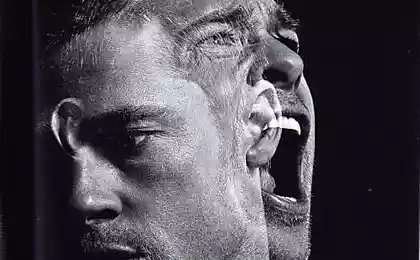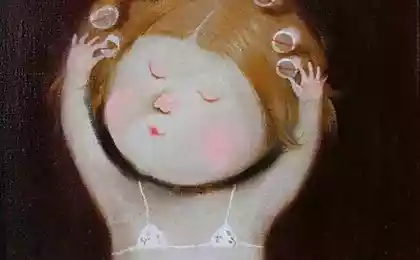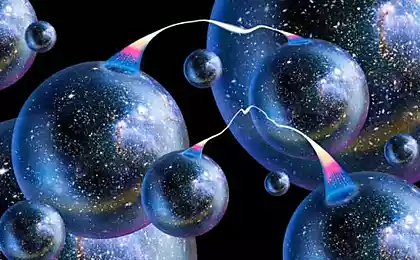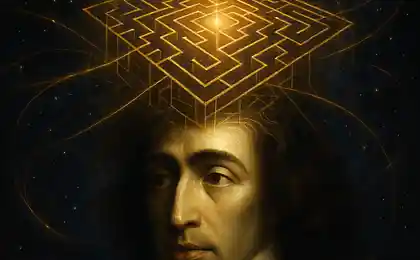1245
The effect of samooborone: 16 basic desires of man according to rice
Over time, I became alien
all human needs
— K. Ladewski
In philosophy and motivational psychology, there are many models describing human behavior. Often, they offer to reduce the diversity of the motives to a few basic reasons, sometimes to dozens. Sometimes they drive all the desires of man to one (for example, pursuit of happiness) or two (for example, finding the gratification and avoidance of suffering).
In the diaries of Daniil Kharms is there any record of earthly interest — food, drink, warmth, woman, and heaven. In heaven interest is in the search of immortality, which people are trying to achieve, in turn, in one of three ways: to continue the race, to immortalize the name or to attain eternal life through Holiness.
Widely known "Maslow's pyramid". Maslow suggested that human needs are physical, social and necessity of self-realization. Maslow believed that satisfaction of the need for food, sleep, warmth, people then were puzzled by the sexual question and social recognition, and then reaches the level where you can address self-actualization.
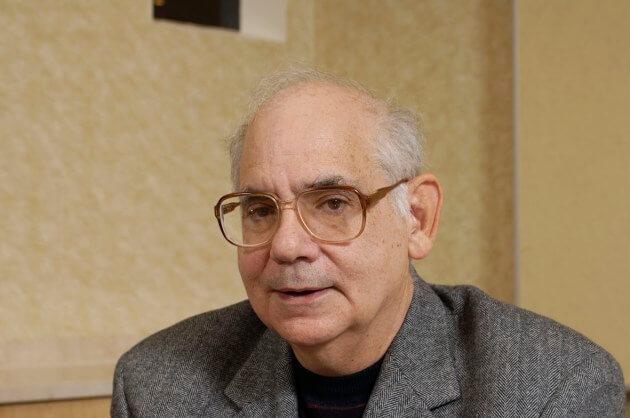
A disadvantage of this model Maslow is the factthat people can, breaking his pattern, to neglect the "lower" needs for "higher", for example, to sleep for the sake of education or to risk life and limb for the sake of power.
Another important disadvantage: Maslow's pyramid describes a universal man, ignoring the important fact that the priorities of different people may vary significantly. Reiss calls himself a follower of Abraham Maslow in the sense that the main merit of the latter is generally an attempt to consider human nature from a motivational point of view.
Reiss considered that it is necessary to combine the achievements of psychology (mainly methodology) and philosophy (semantic concepts) to develop the most appropriate theory of motivation
In 1998, the American psychologist Steven Reiss has proposed a model in which man is seen in the focus of sixteen of primary needs, each of which acts independently of the others, and an individual set force of which varies from one to another.
The number "16" should not mislead, basic desires — not psycho, and Reiss considered the variants with 10-d or 17 different grounds, but found them less functional.
Professor Reiss has created his theory after his release from hospital, where he delivered a deadly diagnosis.
When we face tragedy, we are reviewing what we have done, contemplating, what could have done and wonder what it means. We know who we are and what we really appreciate.
So, thinking about death, selfishness and duty, he came to the conclusion about the inadequacy of the notion that man is simply "the pleasure principle". Because one person prefers to stay at work, and the other to spend time with family, and the fact that they are both guided by the desire to feel good and to avoid trouble, does not help us understand why they take the opposite action.
Having studied the history of the issue, Reiss found that, according to Plato, a man driven by the pursuit of truth, in the Freudian Eros and Thanatos, Jung — a will to live, in Adler, superiority and power. Carl Rogers assumed that two basic desires: self-realization and samopoznanie.
James creates for a more detailed list of basic instinctive desires: thrift, creativity, curiosity, narcissism, the family, hunting, order, play, sex, shame, pain, gregariousness and revenge.
In the future, McDougall expands on this list and continues to research, and Murray pushed away from him in developing their own list in 1938 and offers its Thematic apperception test (TAT).
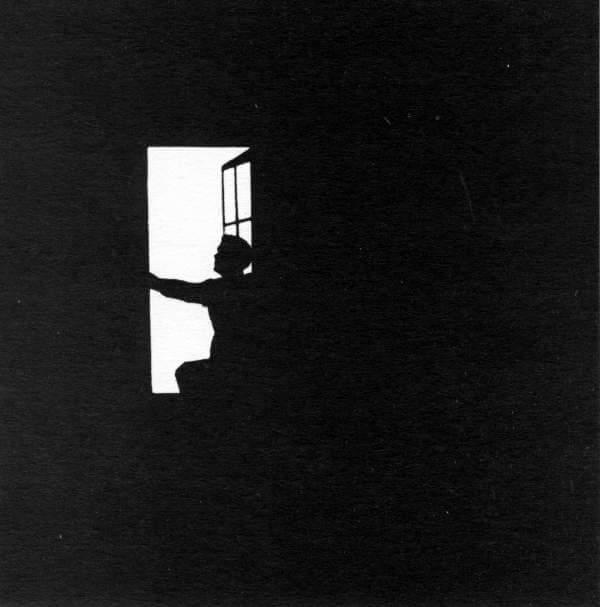
However, the theory of James and McDougall found no response either in the camp of psychoanalysis, nor in the camp of behaviorists. Did not like the overly complex set of instincts, and the second is the possibility of inheritance of their degree of severity.
Reiss considered that it is necessary to combine the achievements of psychology (mainly methodology) and philosophy (semantic concepts) to develop the most appropriate theory. This was formulated 328 original objectives, is reduced by factor analysis to 16, as 15 – 16 categories covering the target with the highest degree of completeness and accuracy.
The important point was that the vital needs that do not have individual manifestations (e.g., water demand), was deleted. The study surveyed 6,000 people.
The effect of samooborone — the tendency to project onto others their own motivational model, expecting that others should" follow the same as you
An important concept of the theory is the effect of samooborone. The effect of samooborone is the tendency of people to project onto others their own motivational model, expecting that others "should" be guided by the same. This problem is one of the profound reasons of misunderstanding and conflicts in human society, clashes with Others.
Rice writes about it:
Your boss is experiencing the basic desires differently than you. Parents have the main desire is not so their children. Wife experience basic desires in a completely different way than their husbands. Sex one people derive much more pleasure than others, partly due to individual diversity in the genes that stimulate interest in sex.
Similarly, the fatherhood and motherhood bring much more joy to one than other. Since we can't experience a degree of pleasure that the other person gets from sex or paternity/maternity, we sometimes can not determine the extent to which these desires are or are not motivational for other people. We often do not understand why some people react to sex or fatherhood/motherhood is different from us because we cannot imagine how genetic differences give rise to different intensity.
"Each of the 16 desires in reality is a group of interrelated motivations, "writes Reiss.
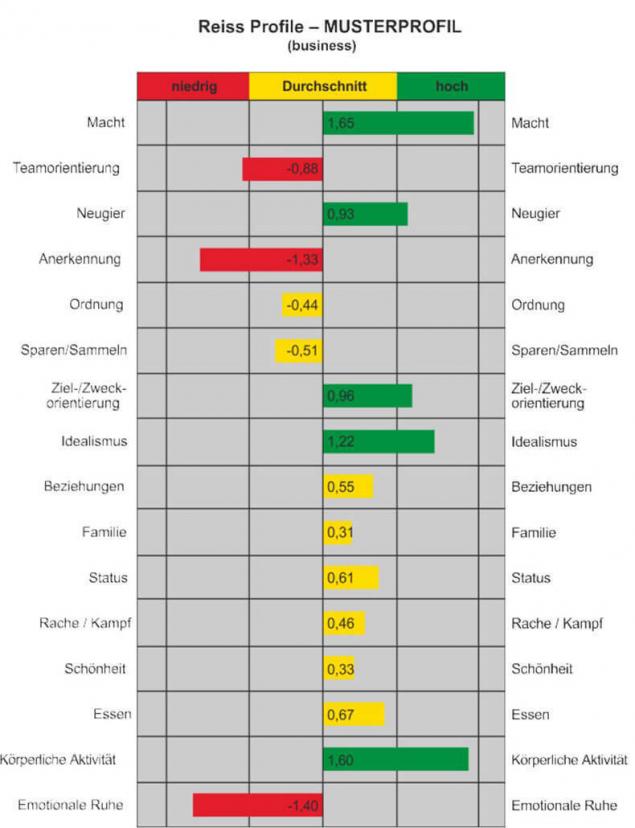
So here's 16 basic desires Reiss taking into account the effect of samooborone:
Recognition — the need for approval, to join the group.
The same need is expressed in the desire to be loved. With a strong manifestation encourages people to avoid the attention of critics and public speaking, also a difficult task. Connected with self esteem and dignity. The effect of samooborone for this requirement is that the person has a strong need for recognition sees itself as unobtrusive, with a weak — as sure. The other, a man with a badly some need for recognition, will be perceived by us as too sensitive or, on the contrary, smug.
Curiosity or inquisitiveness — the need for training, the thirst for knowledge.
Reiss emphasizes that it is not intelligence (the ability to the light of knowledge of things), and what emotions the individual receives from the process of cognition. In addition, you can be curious, but not to love intellectual games (chess, bridge), because they are not associated with the search for truth. Curious people often ask the questions. The effect of samooborone appears as follows: I (smart / practical), other (rustic / boring).
Food the need for food.
Also drinking customs and hunting. The effect of samooborone: I (gourmet / sensible), the other (limiting myself / glutton).
Family — the need to raise children, maternal and paternal instincts.
The effect of samooborone: I (Executive / independent), other (selfish / couch potato).
Honor — the need for loyalty to the values of the ethnic group, clan and parents.
Connected with patriotism. The effect of samooborone: I (principled / rational), other (dishonest / prude).
Idealism — the need for social justice and equality.
Is of interest to philanthropy and politics. The effect of samooborone: I (compassionate, fair / realist), other (cynic / dreamer).
Independence — the need for freedom, self-determination and to rely on their own strength.
The effect of samooborone: I (independent / devotee), the other (immature / stubborn).
Order — the need for a predictable and organized environment, clean.
"Every man has his level of order as the most comfortable." The effect of samooborone: I (organized / flexible), the other (sloppy / pedant, perfectionist).
Physical activity — the need to exercise.
People involved in sports, in varying degrees doing this for use and for pleasure. The effect of samooborone: I (active / quiet), the other (lazy athlete).
Power — the need for the manifestation of the will, the desire to influence other people to achieve success.
Ambition, dominance. The effect of samooborone: I (leader / located person), the other (lazy / bossy).
Romance — the need for sex and at the same time aesthetics.
The effect of samooborone: I (sensuous / austere), other (frigid / hedonist).
Thrift — need something to collect, to accumulate.
Associated with such qualities as greed, extravagance and penchant for collecting. The effect of samooborone: I (economy / enjoying life), other (spendthrift / tightwad).
Communication — need to communicate and friends (peer relationships).
The effect of samooborone: I (open / serious), the other (a closed surface).
Status — the need for social standing/importance, attention to reputation and the impression produced, titles and awards, prestige, and consumption of premium-class.
High or low this need reflects both self-esteem and perception of others. The effect of samooborone: I (elite / unbiased), the other (minor / snob).
Peace — the need for security, emotional comfort.
This need is closely linked with the intensity of the experience of pain, stress and fear. The effect of samooborone: I (careful / bold), other (adventurous / fearful).
Revenge — the need to fight back, compete and win.
Connected with anger and hatred. The effect of samooborone: I (winner / non-conflict), the other (passive / aggressive).
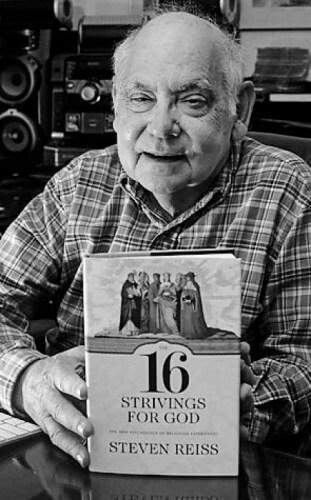
In the book Raissa "16 strivings for God" which examines the psychology of religion: in his view, faith meets all sixteen basic needs.
(Photo © Tom Dodge)
Every need a person may be expressed in different ways. Reiss stopped at three border values: weak appearance, average and strong. The scheme provides a wide variety of human types, because the needs are considered as independent from each other.
14 requirements can be in varying degrees, found in animals, 12 can be activated in religious practices that is consistent with the theological positions: religion could not fall within the scope of several psychosocial functions and should not be considered narrower than "form of culture".
As to the permanency needs, repeated studies have shown extreme resistance 16 basic desires in people over time. It seems that they are genetically determined or formed at an early age. "People can change, but to a certain extent and not very easy."
The differences between genders are statistically averaged out for individual deviations. Thus, the trend of men were more likely to be aggressive and less need rest, although the strength of the parental instincts in both sexes varies slightly.
Reiss writes that there was no correlation between the needs and ethnic groups, but acknowledges that the study was subjected to only the United States, Canada and Japan.
Therefore, he is not ready to draw conclusions about the role of culture and education in the formation of needs, while tending to consider it as still less than the role of genetics. In any case, the professional tests have found that different occupations attract different people.
Tests have been developed, which involve hundreds of issues and sometimes even control reconciliation using questionnaires observers, evaluating. The simplest test consists of 16 questions like this: "you normally have more or less need for independence (as an example) than your peers?". In this embodiment, the accuracy depends on understanding yourself and others, and essentially every need.
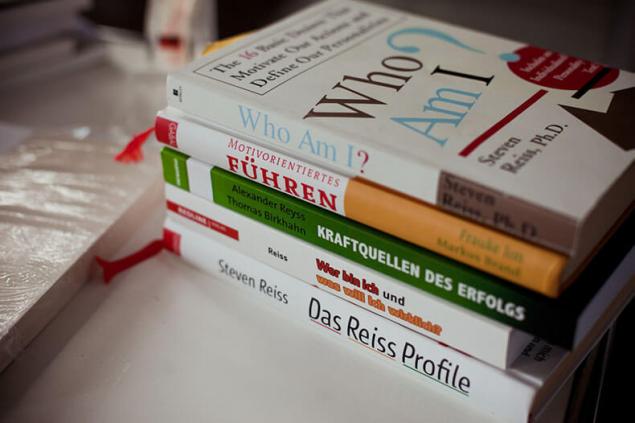
Model RISSA is a valuable psychological and social tool, already adopted by the personnel departments of large corporations and is used in professional sports.
However, the reasons and the purpose of its creation was imagining something more important: this is a contribution of the author in the understanding of human nature.
So, Reiss says that 16 needs there are total 6 spheres meet them: family, relationships, work, spiritual life, sports and happiness. It is proposed to distinguish between "sensual happiness" that brings pleasure in the present time and "value-based happiness", which fills our life with meaning.
20 sobering things we need to understand
About the prop itself
Some people focus on the first, but at some point, can feel the devastation. And although there is no reason to abandon the simple pleasures, is much more important than "value-based happiness" — especially because it supports life in people who find themselves in situations of diseases, injuries, social disruption and other circumstances that is not always possible to choose.
Author: Anton Timokhin
P. S. And remember, just changing your mind — together we change the world! ©
Source: eroskosmos.org/reiss-desires-theory/
20 Soviet films that Harvard University is considered mandatory viewing
Blueberry marble cake: easy and fast!






